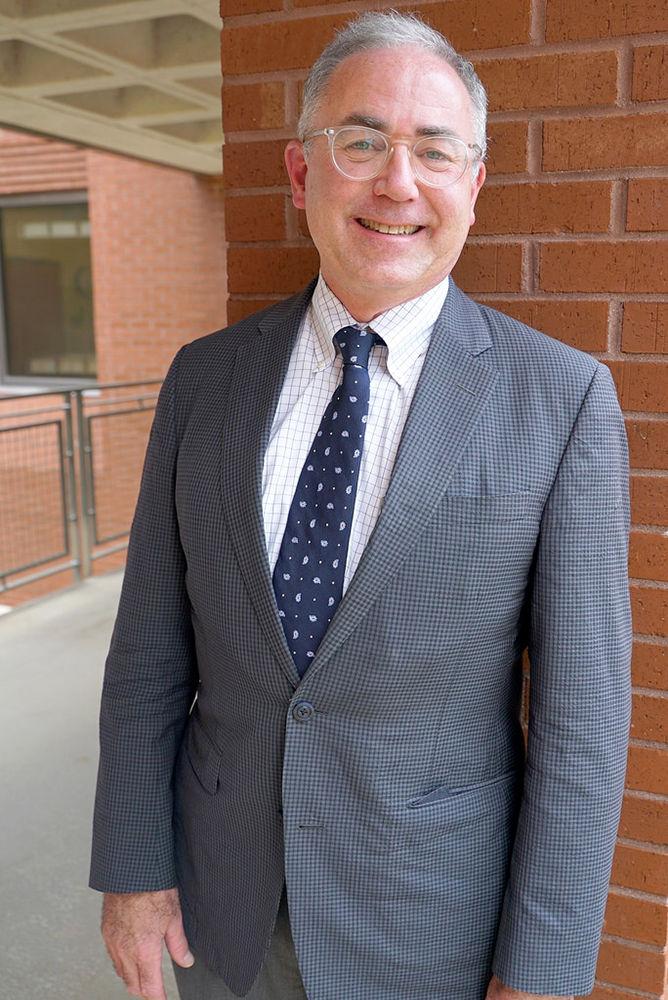The new associate dean of the Division of Academic and Student Affairs (DASA) Bret Smith took the time to speak with Technician about starting his new position here at NC State.
What is an associate dean and what do they do?
I’ve been an associate dean at another university. The dean according to American Heritage comes from Latin decanus meaning “leader of 10.” In academia, the dean is typically the leader of a college within the university. The dean is responsible for both the administration and the academics of the college.
Associate deans at a certain level is a pretty easy description. They serve at the pleasure of the dean. And typically, they have primary responsibilities for specific areas. Most colleges have an academic dean or an associate dean of academic affairs or undergraduate studies. So that the primary responsibility would be to work with undergraduate programs and that sort of thing.
My portfolio of responsibilities is a little different. It includes exploratory studies, … academic advising services, undergraduate courses and curriculum, interdisciplinary degree programs, minors and certificates and academic enrichment programs such as undergraduate research, fellowship advising for honors and scholars program, as well as the TH!NK Program. And I work with the directors of each of these areas and their staffs to ensure that we’re providing a high level of service and support for students and for the university.
What were your expectations when arriving to NC State?
I’m thrilled to be here. I’m working with incredible people who are deeply committed to our student’s entire education. In my youth, when I was in high school, I worked at a camp as a camp counselor. And I remember the camp director telling us that the program was everything that happened at camp, not just what we had scheduled but the entire camp experience. And as an industrial designer, I understand that successful solutions require collaboration, respect for different points of view and a recognition that life doesn’t consist of a single type of experience. Or a series of compartmentalized experiences. In the same way university education involves in class and out of class experiences. DASA, the Division of Academic and Student Affairs, is not a typical structure for a university. In most universities, academic and student affairs are separate units. And they were at my previous institution and I always thought it was a little strange that both units are concerned with education and experience of the students. Why aren’t they set up to work together? And to talk with each other?
Do you have any plans or ideas to bring to NC State?
I’m a systems thinker. I’m always looking for opportunities to solve problems and increase the quality of experience. I’m a product designer, a professor and an administrator and people often see these things as separate, but I don’t. People often look at a well-designed product as the end result. But I see a well-designed product as a byproduct of understanding and responding to a complex system of relationships.
What do you believe you add to NC State?
Well, that whole process. That way of thinking is certainly one of the things that I bring to NC State. I think that process is transformative but I’m not the exclusive person that understands it.
Will your way of thinking will help to guide the Exploratory Studies program?
Yes, I think it will. I’m hesitating a little because I just got here. Clearly, I have a lot to understand. I can tell you the next thing I’m going to do. The next thing I’ve been doing since I’ve got here is meeting with everybody, trying to understand what is the context of the program here because I worked with exploratory studies at my previous institution and have a detailed understanding of the mechanics and worked with them to solve several problems but that’s a different user group. That’s within the context of Auburn University and what I think is a very dangerous thing is to say, “Oh I have the solution for this. We did it at my old institute.” NC State is NC State. And so, learning the context of its programs, learning the needs of its students and its staff and its faculty and the essential administration, those are all part of that initial problem-solving exploratory process. But yes, not only do I think that approach is not only useful in exploratory studies but also interdisciplinary programs and certificates and that sort of stuff I think again respect, asking questions, understanding contexts of use, understanding the needs of the people within the system; those are all critical.
What do you hope your next step is at NC State?
What I plan on doing, what I am doing now is developing as broad and detailed of an understanding as I can of the context. Everything from student experience to the experience of faculty and staff. There’s a lot of fact finding that has to happen and listening and observation. And then out of that will come opportunities to strengthen connections between things and perhaps gain some efficiencies. Looking to find ways to improve what we do. Fact finding, understanding what’s going on and how connections work. And then looking for ways that we can be better.








